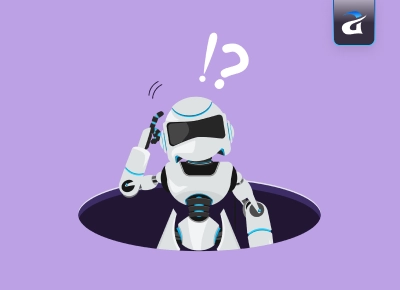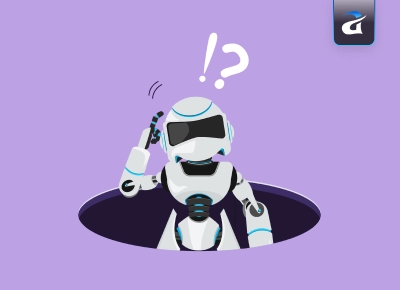The Future of AI in Everyday Life
Artificial intelligence is gradually deviating, from contributing to technological applications to being part of our daily aspects; whether its work, school, or home life, Artificial intelligence is helping around everywhere, highlighting its significance in forming the upcoming modern age. This blog paints a comprehensive picture of how AI and the future connect, especially in areas like healthcare, education, transportation, and work.
AI in Healthcare
AI offers a massive aid to the healthcare sector. Its swift mechanism enables medical reports and images to be analyzed much faster than human professionals, as well as any minor information that goes unnoticed by human doctors is detected by AI. Additionally, while it plays a crucial role in the enhancement of diagnosis accuracy, it also offers patients with a personalized plan to take better care of themselves, proving itself to be a pragmatic approach to improve the well-being of patients.
Also, did you know what AI for the future has in store? It offers remote monitoring and telemedicine capabilities. For instance, smartwatch. It can easily notify users if their heartbeat is irregular since it keeps track of it. Similarly, there exist other devices that can track vital signs and health metrics in real-time, keeping patients alert and aware.
AI in Education
Classrooms are often crowded, making it difficult for teachers to give each student the individual attention they need. As a result, some students may fall behind. However, Artificial Intelligence is addressing this issue by offering personalized lessons tailored to each student's strengths and weaknesses. This allows students to better understand the material and fosters greater engagement.
Moreover, AI is reshaping the future of education with platforms that are driven by artificial intelligence. These platforms help teachers manage administrative tasks automatically and provide valuable insights into each student's performance. For example, AI can grade assignments and monitor students' progress, freeing up teachers to focus more on teaching and interaction.
Artificial intelligence could be a game changer in education, as its advanced algorithms enable it to track the performance of every student, ensuring no one slips through the cracks. With the help of AI, the education system can create a more dynamic and comprehensive learning environment where the needs of all students are addressed equitably.
AI in Transportation
Another sector that benefits greatly from AI is transportation. How, you may ask? The integration of AI into this realm is paving the way for a revolutionary shift, with innovations such as smart traffic management systems and autonomous vehicles. The future of AI promises to enhance both security and efficiency in transportation. For instance, by using real-time traffic data, AI can optimize routes to reduce travel time and alleviate congestion. This helps balance traffic flow across different areas, improving overall transportation efficiency.
AI solutions also offer significant improvements for public transportation, keeping users updated on schedules and routes in real time. The days of uncertainty and inconvenience for passengers are fading, as they can now rely on AI-driven schedules. For example, these systems can notify passengers when the next bus will arrive or provide real-time updates on delays and changes in service.
AI and the Future of Work
As we explore AI’s role in the future of work, it’s important to understand how it will shape job roles and workplace dynamics. Contrary to common fears that AI will replace human workers, the reality is that AI will enhance the work done by humans by collaborating with them. For instance, repetitive tasks will be delegated to automation, allowing employees to focus on core functions and strategic activities. This will not only increase productivity but also foster innovation.
In today's fast-paced business environment, gaining insights into market trends, consumer behavior, and employee performance is vital for driving growth. AI-powered analytics provides real-time data and actionable insights, helping businesses improve efficiency and ensure long-term success.
Ethical Considerations and Challenges
The integration of AI into our daily lives undoubtedly brings convenience and efficiency, but it also raises certain challenges. As AI becomes more prevalent, concerns around privacy and job displacement come to the forefront. Therefore, it’s essential to develop and utilize AI responsibly, ensuring that trust and fairness are maintained.
Establishing clear regulations to guide the development and use of AI is crucial. Companies must uphold ethical standards when deploying AI technologies, ensuring that they serve the greater good and address societal concerns. By doing so, we can ensure that AI's benefits are distributed equitably and its potential risks are minimized.
Conclusion
Artificial intelligence will continue to transform and enhance various aspects of our lives. Whether in healthcare, education, the workplace, or transportation, AI will have a significant influence. However, it’s important to keep in mind the challenges, such as ethical considerations and privacy concerns, that come with the adoption of AI. By taking a pragmatic approach to these challenges, we can ensure that AI serves as a tool to bring positive change and improve the quality of our lives.


